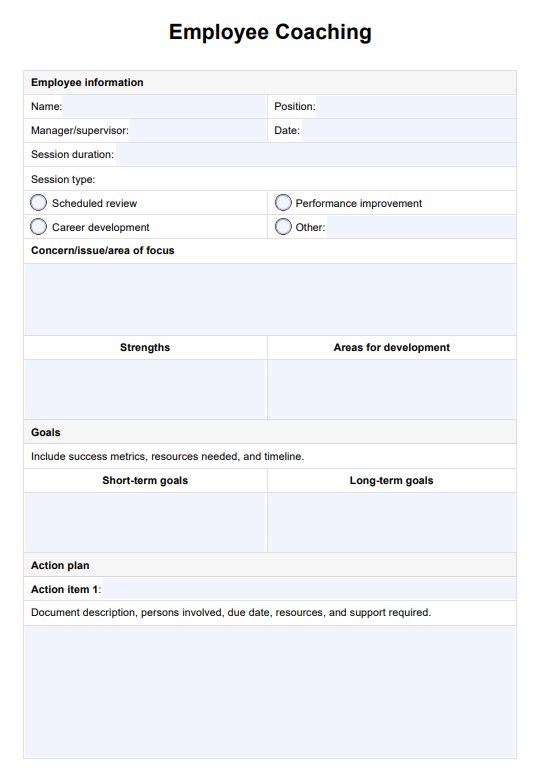To write an effective coaching plan for an employee, start by clearly defining the objectives of the coaching relationship. Next, the employee's current skills and performance levels are assessed through observation and feedback to identify specific areas for improvement. Develop actionable steps that include measurable goals, timelines, and resources needed for achieving these objectives. Incorporate regular check-ins to monitor progress and make necessary adjustments to the plan. Finally, ensure that both the employee and coach agree on the plan to foster commitment and accountability.

Employee Coaching Template
Streamline employee development with our Employee Coaching Template for effective goal-setting and progress tracking.
Employee Coaching Template Template
Commonly asked questions
The five basic elements of a coaching session include establishing clear objectives, building rapport, exploring current reality, setting actionable goals, and ensuring accountability. First, clarify the session's purpose by defining specific, measurable goals. Next, create a trusting environment where open communication can occur. Then, assess the coachee's current situation to identify challenges and opportunities. Afterward, collaboratively develop a clear action plan with defined steps to achieve the set goals. Finally, follow-up mechanisms should be implemented to hold the coachee accountable for their progress and to provide ongoing support.
To document employee coaching effectively, maintain detailed records of each coaching session, including the date, duration, and key discussion points. Note any specific goals set during the session and actionable steps the coach and employee agreed upon. Additionally, record observations about the employee's progress towards these goals and any feedback provided during sessions. You can use a standardized template for consistency and ensure both parties can access this documentation for transparency and accountability.
EHR and practice management software
Get started for free
*No credit card required
Free
$0/usd
Unlimited clients
Telehealth
1GB of storage
Client portal text
Automated billing and online payments











